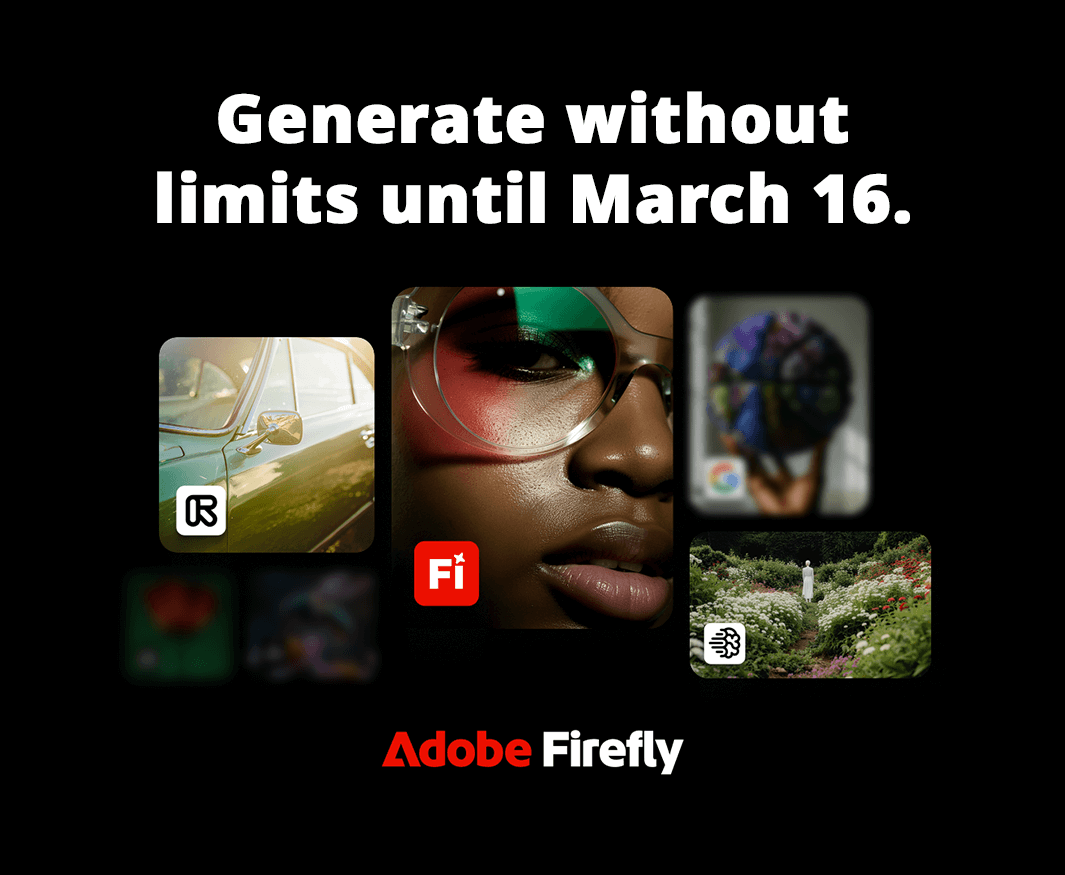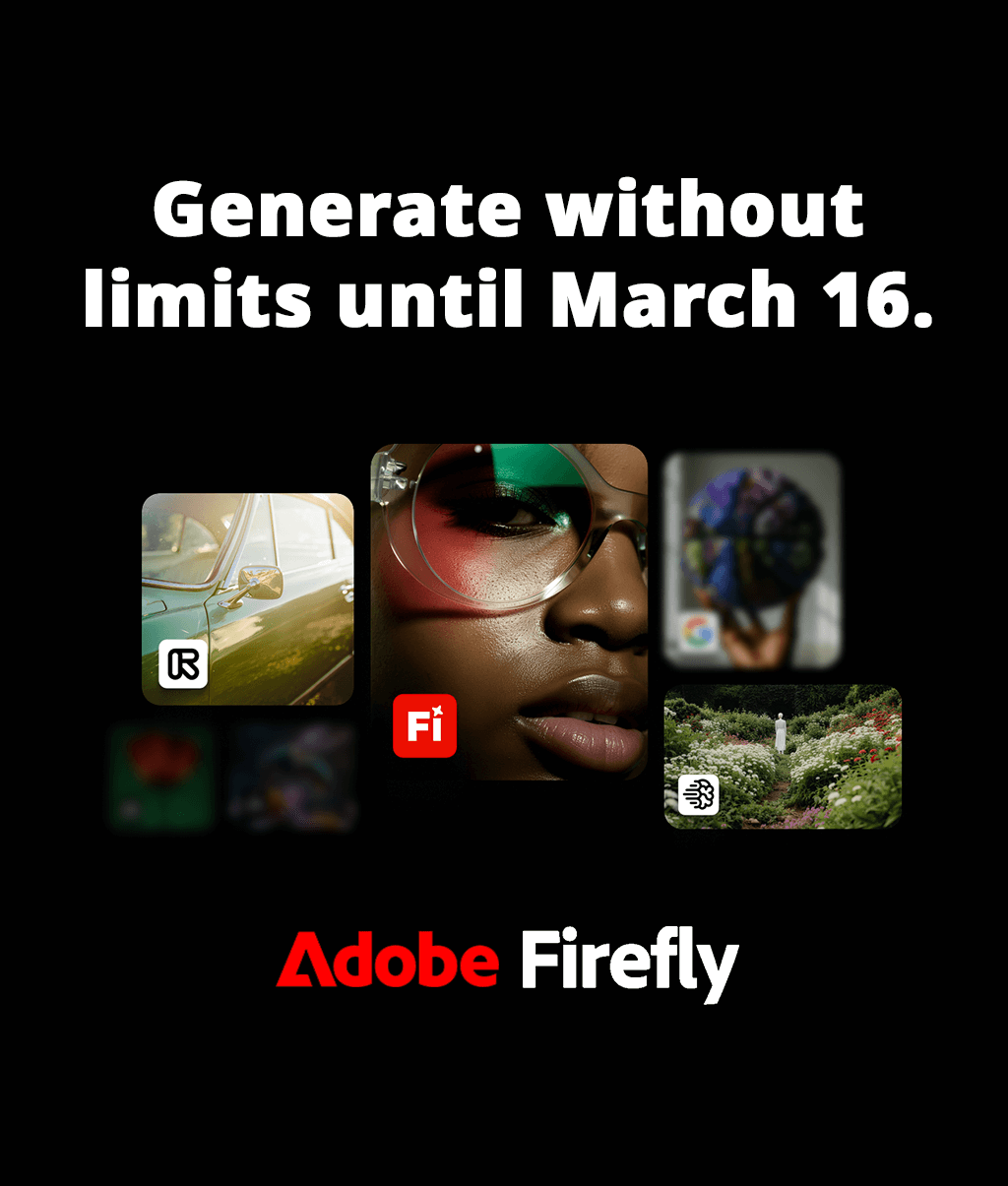How to Sell Photos Online

Are you looking for the best places to sell photos online? High-quality photos are incredibly popular nowadays, so you couldn’t pick a better time to jump in and learn how to sell your photos fast.
What types of images are selling the best? The answer is obvious – these are the photos with people.
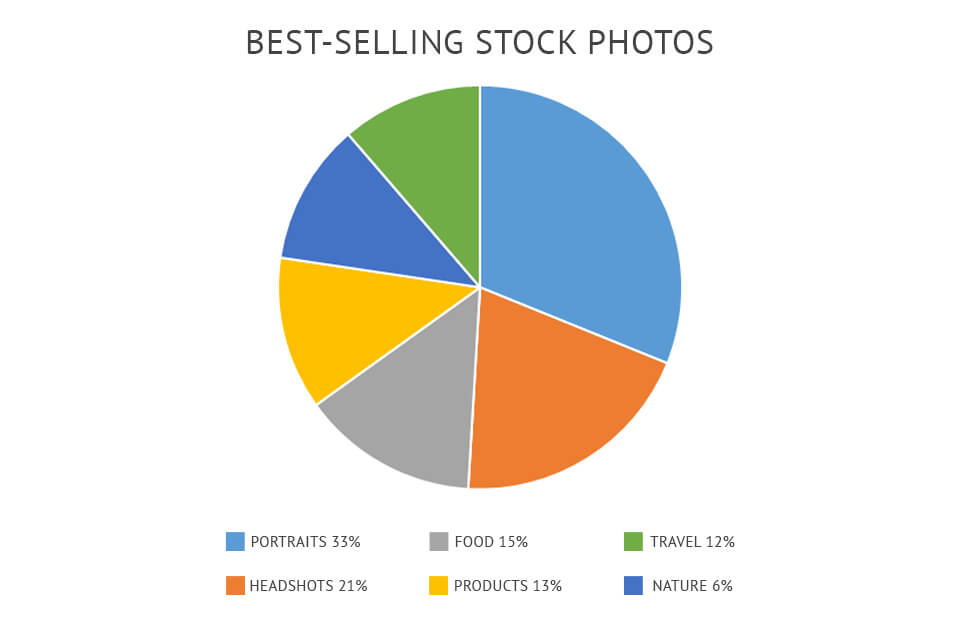
Your main buyers will be bloggers and small/medium sized website business owners.
21 Ways to Sell Photos Online
Nowadays, the internet allows you to monetize any possible hobby and turn it into a full-fledged income source. With the rise of photo banks and stocks, photography enthusiasts have the opportunity to sell images online, while earning a decent sum of money.
The work you do for photo stocks can either be your additional income or the main way you make money.
1. Your Own Website

The best venue for learning how to sell photographs on the internet is your personal site. You can set the prices as you like and are in charge of how your work will be presented. I suggest creating the website based on a WordPress template.
- Check out beautiful WordPress photography themes.
2. Blogging

A highly efficient way of gaining more traffic for your website is having an active blog. The posts you write for it can contain all the relevant keywords and attract more attention from search engines like Google to help you sell your picture online. Additionally, a blog gives you a chance to interact with your customers, gets your name out on SM sites, and allows you to remind the visitors that your images are purchasable. Content-wise, you can write posts related to your daily work, the photography industry in general orshare the stories behind your photos. Not onlyyou get to attract visitors that enjoy your writing, but you’re also reeling in more potential customers.
3. Adobe Stock

This platform (previously known as Fotolia) is a stock photography website owned by the developer of Photoshop and Lightroom. Being on the market for almost a decade now, it’s often credited as the first company that allowed selling photographs on the net. Photographers here take a share in the 20% to 60% range, depending on the type of sale. The platform also doesn’t demand exclusivity, which is a great plus if you’re only starting to learn how to sell pictures on the web.
- View more about how to use Adobe Stock Free.
4. Shutterstock

This platform hosts more than 270 million photos, clips, and audio tracks offered royalty-free. It’s also visited by millions of clients every month. This is why when someone asks “How to sell my photos?” on a forum, many professionals simply say “Shutterstock.”This service takes care of your intellectual property and allows you to set the rights on the images. Additionally, this company makes sure you are credited for your photographs, which is essential for protecting your rights and growing a brand presence. You make 20-30% of the overall sales amount, and the earnings are paid out each month.
5. Etsy
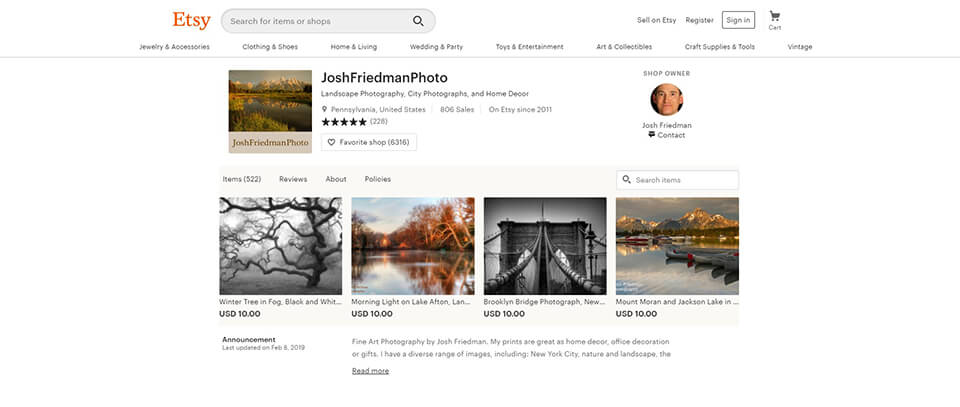
Even though Etsy is mostly used by traders, who sell and purchase handmade products and isn’t found on many “How to sell photos online?” lists, with a user-base of 30 million people, photographerscan also find a place here. One of the best aspects of this platform is that it boasts a bigger customer base than the majority of stock image websites. You have the opportunity to either sell digital copies of your photographs or prints (as long as you handle the packaging and shipping). Additionally, you get to determine the pricing and receive most of the revenue.
6. Alamy
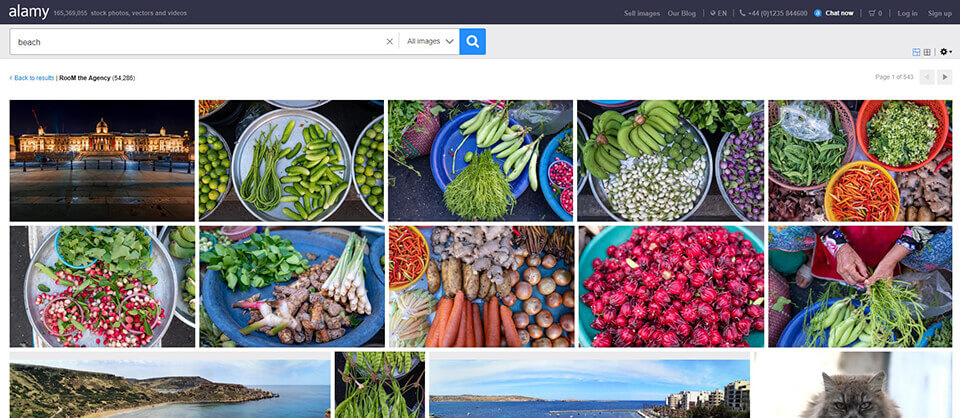
Despite being a considerably smaller site than Shutterstock or Adobe Stock, this is stilla fantastic option for photographers, who want to start selling stock photos online. You can freely upload your work without having to worry about licenses or copyright violations. Last time I checked, Alamy has already paid out over $180 million to photographers, who sell on their site. You get a generous cut of 50% for each sold image, which makes this platform a terrific place for selling photographs.
7. iStockphoto

This website has been on the market since 2001. If you want to find out how to sell pictures online and sign up for this platform, you have to pick your category (photography, graphic design, videography or music) and fill out a form (free of charge). A member of iStockphoto’s staff will verify your application and will offer you a brief test. The last stage consists of sending a couple of your best images to prove your proficiency level. Once you become a member of this platform, you’ll earn at least 15% for any sold photograph. Moreover, if you manage to gain an “Exclusive” status, the percentage will increase to 45%.
- Check out the best photo sharing sites.
8. Freerange
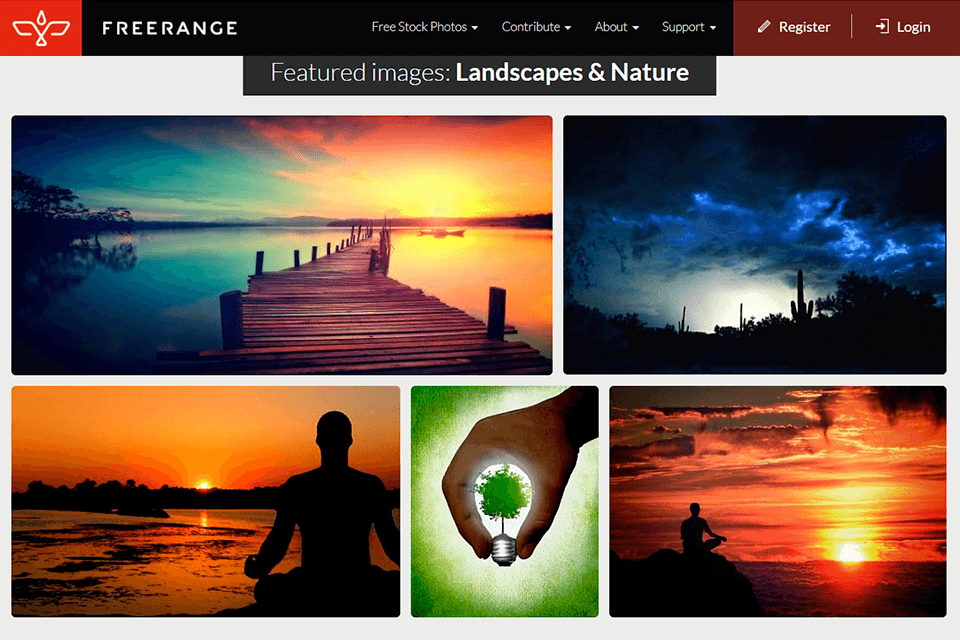
The Freerange Stock is a photography community that provides more than 725,000 official users with all sorts of stock photos. All pictures are licensed and don’t entail attribution.
Take advantage of dynamic visual tools to achieve greater commercial success. Photographers can earn through advertising placed next to their pictures. Once visitors of the page click on the ad, the owner of the images gets some income.
Freerange has a clear and fair copyright policy. They cooperate with photographers without intermediaries. Before posting an image, it is checked and verified. If the community has any doubts about ownership or authorship, such a picture won’t be licensed. Photographers must provide original files for verification if required.
9. Depositphotos

Unlike Shutterstock, this site has relatively low image quality standards. You only need to upload five works to pass the initial test. Your share is 44-60% depending on the purchase type and you can request a payout when you have at least $50. Since the photos here cost very little, you won’t earn much, but a lot of photographers recommend Depositphotos for beginners who’d like to learn how to sell photos online.
10. 500px

This isn’t just a stock photo site, but an entire community of photographers that constantly hosts contests with valuable prizes. You can meet other photography enthusiasts who’ll teach you how to sell photos and find potential clients. Your commission is either 30% or 60% of the overall sum.
11. Snapped4u
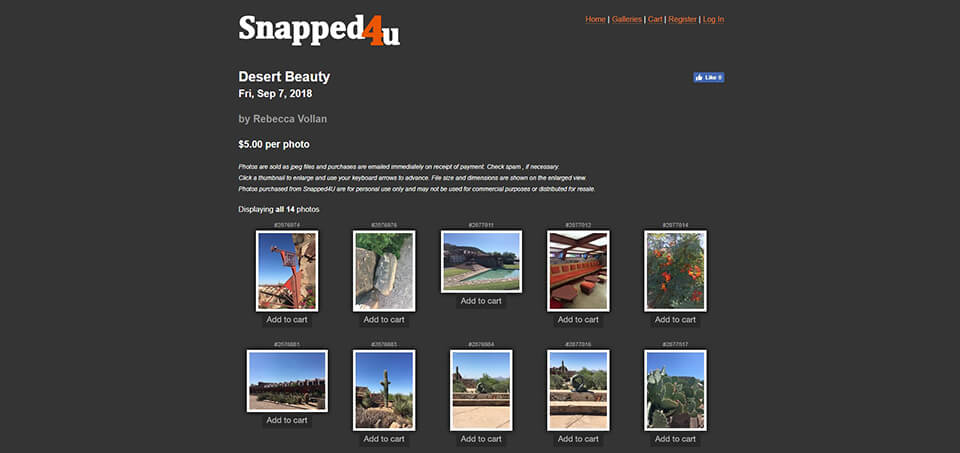
This website is primarily aimed at event photographers. It’s very simple to use since you only have to upload your photographs without worrying about the rest. Pricing-wise, this service will charge you $0.5 per image sold for less than $5 and 10% of the sum for images that cost $5 and more.
12. Visual Society
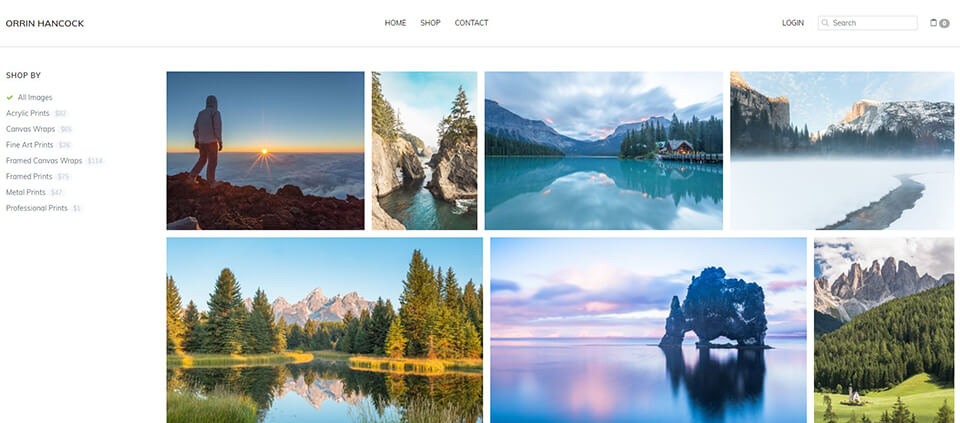
Selling digital photographs and prints on this platform is very simple. If you want to sell stock imagesonly, Visual Society lets you receive all the earnings from your sales. That’s incredible news for photographers, who are used to giving 30-70% of all revenue to the platform. Visual Society gives you complete control over the pricing and lets you build your own photo-selling business. Moreover, this service lets you create canvas and product prints with ease.
13. Dreamstime
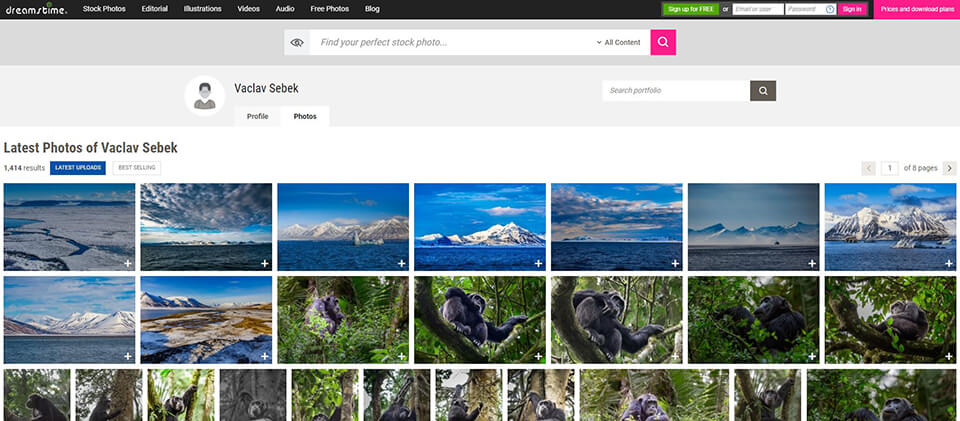
This is one of the most respectable membersof the stock photo industry. Dreamstime earned its reputation by carefully approving each photograph and making sure they meet their high standards. Once the images are reviewed, photographers enjoy 25-30% of the overall revenue. I should note though that this figure can be bumped up to 60% if you’ll agree to an exclusivity deal. Moreover, you’ll even get a special bonus of $0.2 per image for the first hundred accepted works.
14. Fotomoto

If you already own a website but are interested in increasing your product line to prints, this is the best option on the market. Fotomoto takes care of printing, packaging, and shipping, while you only have to take photos. Simply copy the code generated on Fotomoto to your site and you’ll immediately start selling your prints online. This platform has a free basic subscription, but you’ll have to give 22% of each sale to it.
15. FineArtAmerica
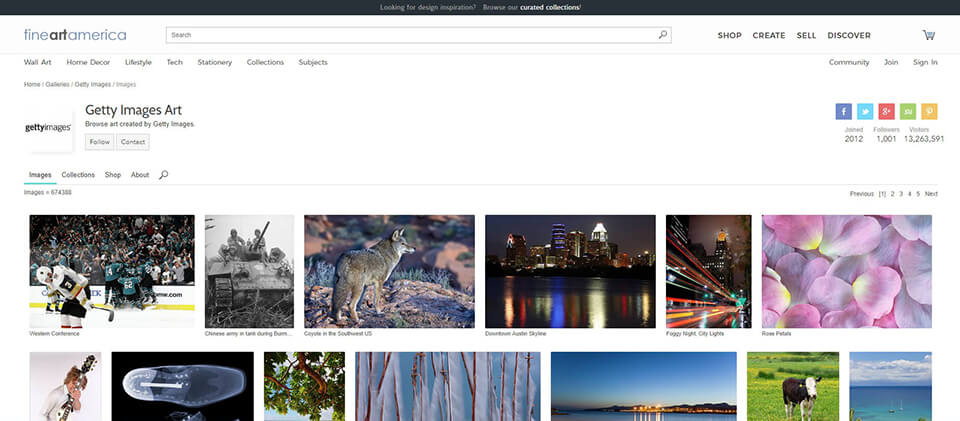
This service allows you tosell your images as canvas, framed, and metal prints, gift cards, etc. Whenever you sell something, you can delegate the printing and shipping processes to FineArtAmerica. You will be charged for the production, but if you have proper pricing, you’ll still receive decent earnings. For instance, if a print’s production costs $50, you can set the price to $80 and make $30 from the sale.
16. SmugMug
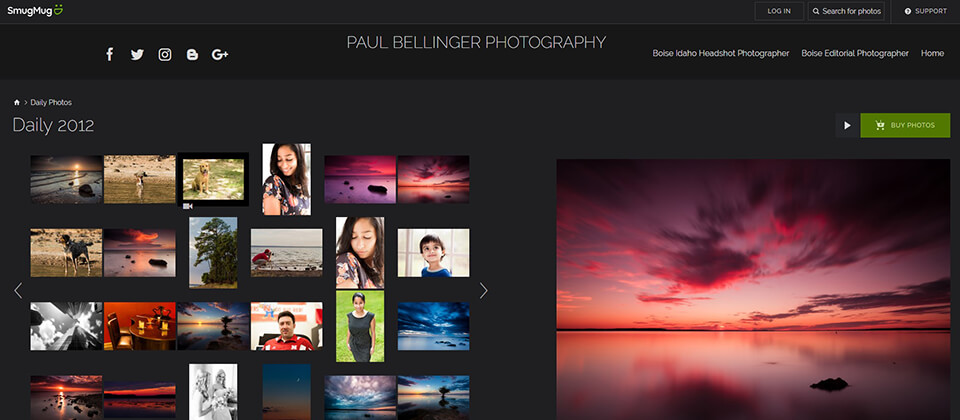
This website allows you to present your photos and manage your sales for an annual subscription payment. SmugMug stands out from other similar companies because it allows you to design various prints, albums, gift cards, and posters using snapshots of your photographs. Besides, you receive 85% of the income, which is a pretty sweet deal compared to other options on this list of the best platforms for learning how to sell photos online.
17. Can Stock Photo
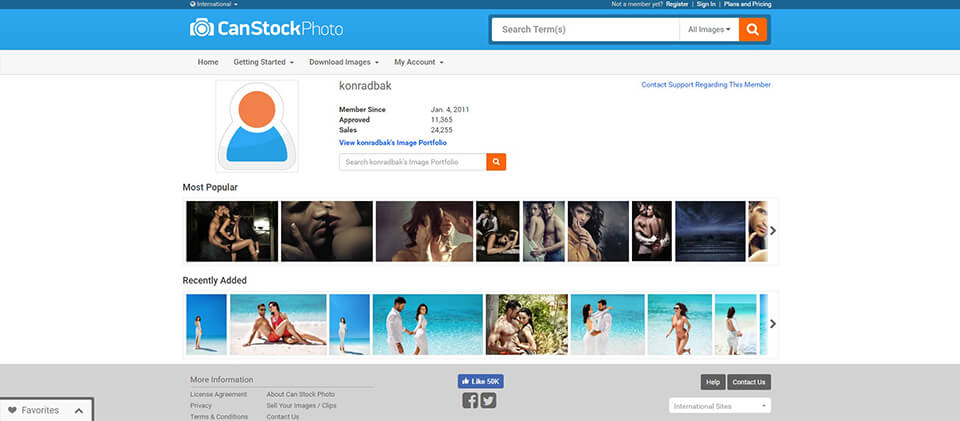
The application process consists of getting 3 photos approved by the platform’s reviewers within 24 hours after you’ve submitted them. A great thing about this service is that all the photographs you upload here also get shared to Fotosearch, which is among the biggest stock image databases. You receive up to 50% of the total earnings and can get them paid out via PayPal once you reach the $50 threshold. If you prefer to receive money by check, the minimum threshold is increased to $100.
18. Stocksy

This platform is known to provide some of the largest payouts to its photographers, which is why I consider it to be among the best websites you can use to sell stock photography online. In order to become a member, you have to upload a minimum of 25 photographs and accompany them with personal info. If your application gets approved, you’ll receive royalties in the 50-75% range. I have to warn you though that Stocksy demands exclusivity on all images you decide to sell here.
19. Crestock

Learning how to sell photos online is easy when you have platforms like Crestock around. You simply have to create a free account on their site and start submitting pictures. All photos are examined and approved by Crestock’s review team and added to your collection. You also get to come up with keywords and titles for each photo, which makes the jobs of Crestock reviewers easier.
20. 123RF
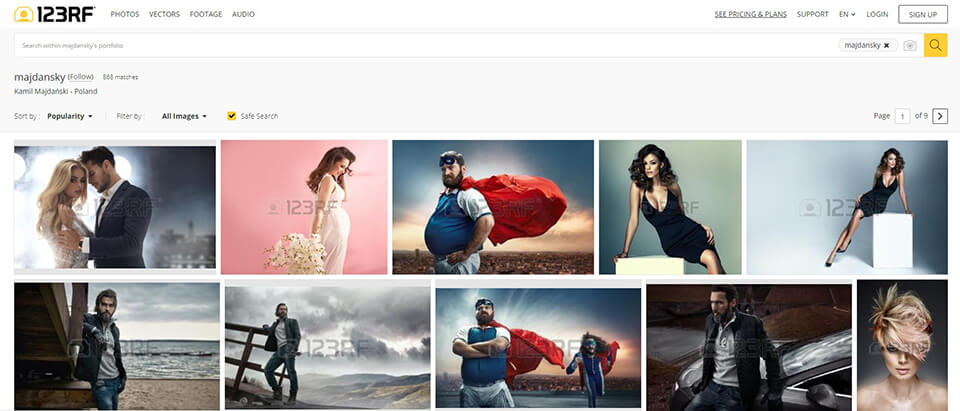
This platform is already a home for more than 110 million photographs and that number is increasing by 100 000 each day. Your get 30% or 60% of each sold image, depending on your contributor level. Basically, the more photographs you have in your portfolio, the more you’ll earn. With less than a 1000 of photos, you get 30%, which is about $0.2 per sale. If you submit more than a thousand images, the percentage is increased to 60%, which amounts to about $0.43 per sale.
21. TourPhotos

For those engaged in travel shooting, this is definitely the best platform to sell stock photography online. You can publish images taken in different parts of the world, which impressed you a lot and now you want other people to see them. It takes a few seconds to sell your images at this site. TourPhotos platform is also popular among tourism agencies that want to post or sell pictures with the aim to advertise their services. Opting for this website, you get the “Sell Plan” without any recurring fee or subscription and unlimited cloud space. The commission is 25% of each sold photo.
FREEBIES for Editing Photos
If you’re a professional photographer who’s learning how to sell photography online, you know how much time it takes to edit hundreds upon hundreds of images even from a single shoot. That’s why I recommend using Lightroom presets and PS actions instead.
Photoshop Action "Vintage Tone"


You can use this PS action to add a fairytale, “retro” feel to your photos. The changes are applied instantly and are non-destructive, meaning you can alter the effect in any way you like with a single click!
- Read more about how to use Photoshop actions.
Landscape Action for Photoshop "Daylight"
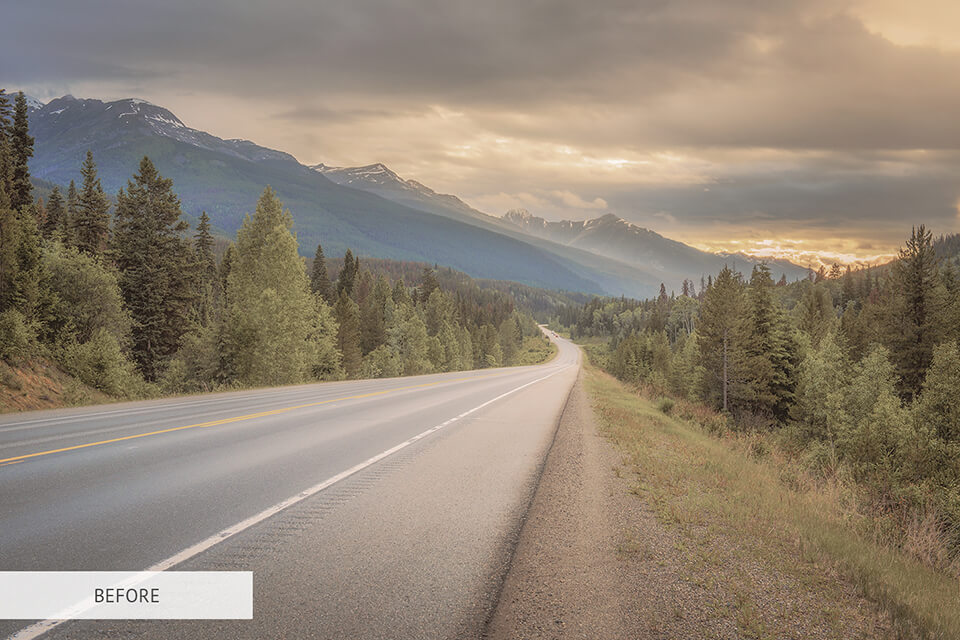

This action makes the photo brighter without a loss in detail and texture. It also boosts the saturation and makes the colors more vibrant, adding depth to the scene. By applying this action, you’ll significantly increase the chances of your photographs being sold.
Bokeh Photography Overlay "Party Glows"


You can use this Bokeh overlay to enhance the composition of a photo and draw more attention to the subject by making the background blurry and have it acting like a frame. Such a contrast between clarity and blur always produces terrific results.
- View more about how to use overlays in Photoshop.
Free Lightroom Preset Portrait "Contrast"
.jpg)
.jpg)
This preset is a great choice for portrait photographers, who are learning how to sell photos online, especially if they mainly work in a studio setting. It’s designed to adjust the lighting and white balance as well as make the photo look cleaner. It’s particularly efficient at improving the skin tone of the models without damaging the texture.
- View more about how to add presets to Lightroom.
Lightroom Preset Landscape Free "Summer Time"


This preset is typically used when you need to deal with underexposure issues. Additionally, it applies a subtle vignette and makes the photo warmer by adjusting the vibrancy, saturation, and brightness values.


